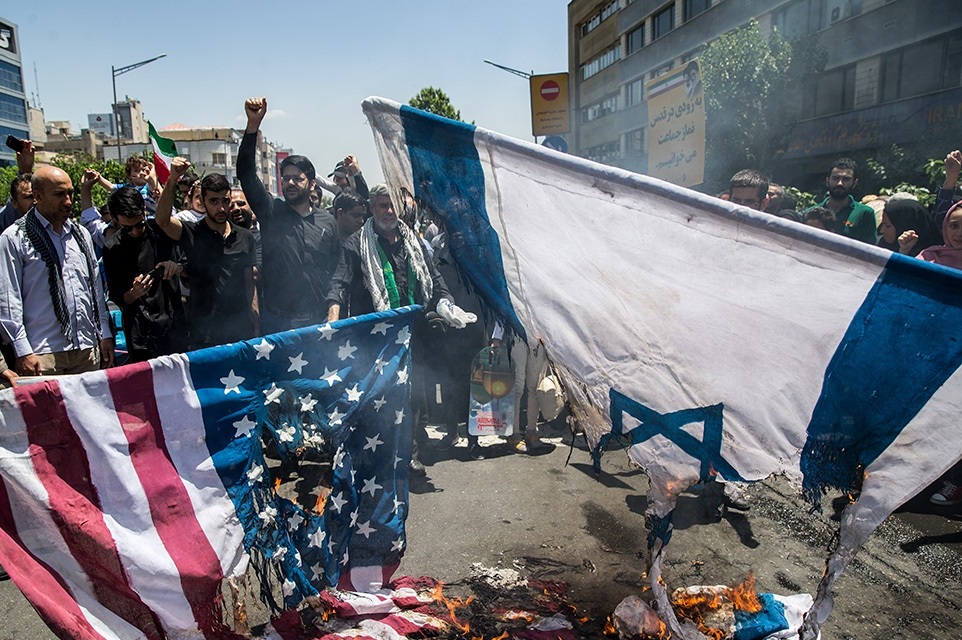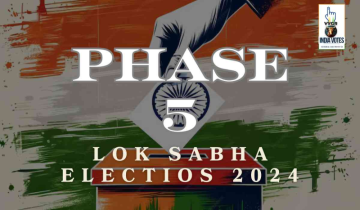Iran Enters the Battlefield
In the latest development, Iran has issued a stern warning, stating its intention to deliver a decisive response following the suspected Israeli airstrikes that struck Iran's embassy in Damascus earlier this week. This attack resulted in the death of an Iranian military commander and marked a significant escalation in the ongoing conflict between Israel and its regional adversaries.
United States has gone on high alert and bracing for potential attacks by Iran, which could target Israeli or American assets in the region in retaliation for Israel's recent strike on the Iranian embassy in Syria. Meanwhile, the Israeli military announced disciplinary actions against two officers and rebukes for three others involved in drone strikes in Gaza. These strikes resulted in the tragic deaths of seven aid workers on a humanitarian mission, with the military citing mishandling of critical information and violations of engagement protocols.
The credibility of an Israeli investigation into coordinated drone strikes on vehicles belonging to the charity organisation World Central Kitchen in Gaza has been called into question. The UN Human Rights Council has demanded a cessation of all arms sales to Israel, citing concerns of "genocide" in the conflict in Gaza, which has claimed over 33,000 lives. In America, a group of congressional Democrats, including former House Speaker Nancy Pelosi, has urged President Joe Biden and Secretary of State Antony Blinken to halt weapons transfers to Israel.
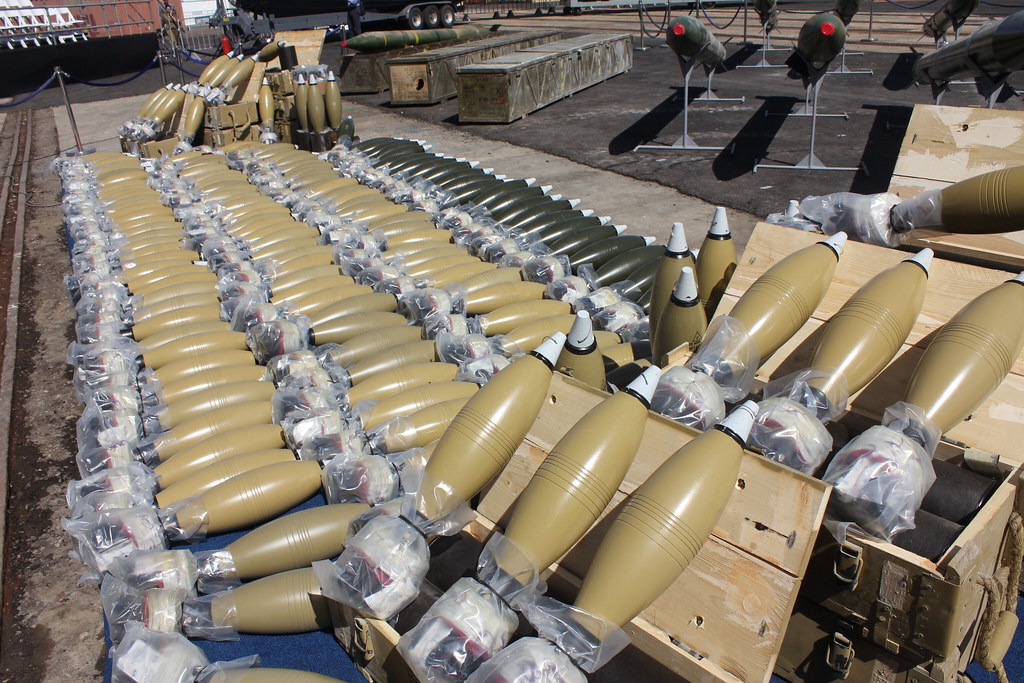
There are reports indicating that the Israeli military may be employing artificial intelligence to identify bombing targets in Gaza. The White House is investigating these claims, according to statements made by national security spokesperson John Kirby during an interview with CNN.
The Guardian has uncovered the identity of the commander of Israel's secretive Unit 8200, a powerful surveillance agency comparable to the US National Security Agency. Yossi Sariel, the controversial spy chief, has operated in the shadows for over two decades, but his identity has now been exposed online. And UN Secretary-General António Guterres has expressed grave concern over the dire humanitarian situation in the Gaza Strip. He has urged Israel to swiftly enhance aid access to the territory, emphasising the urgent need for humanitarian relief amid the ongoing conflict. Guterres also expressed dismay over reports of the Israeli military's use of artificial intelligence in targeting bombings in Gaza.
--
Israel is dragging the world into a war: Understanding Apartheid
In the realm of international law, the prohibition of institutionalised discrimination, particularly based on race or ethnicity, stands as a fundamental principle. Most nations have agreed to classify the most severe forms of such discrimination, namely persecution and apartheid, as crimes against humanity. They have empowered the International Criminal Court (ICC) to prosecute these crimes when national authorities are unable or unwilling to do so. Crimes against humanity encompass specific criminal acts committed as part of a widespread or systematic attack, or acts carried out under a state or organisational policy targeting a civilian population.
The Apartheid Convention defines the crime of apartheid as "inhuman acts committed with the purpose of establishing and maintaining domination by one racial group over another and systematically oppressing them." The Rome Statute of the ICC adopts a similar definition, referring to "inhumane acts" within an institutionalised regime of systematic oppression and domination by one racial group over others, with the intent to perpetuate that regime. However, the Rome Statute does not elaborate on what constitutes an "institutionalised regime."
The crime of apartheid, as outlined in both the Apartheid Convention and Rome Statute, consists of three primary elements: the intent to uphold a system of domination by one racial group over another, systematic oppression by one racial group over another, and the commission of one or more inhumane acts as defined, carried out on a widespread or systematic basis in accordance with those policies. Among the inhumane acts specified in either the Convention or the Rome Statute are "forcible transfer," "expropriation of landed property," "establishment of separate reserves and ghettos," and denial of the right to leave and return to one's country, as well as the right to nationality.
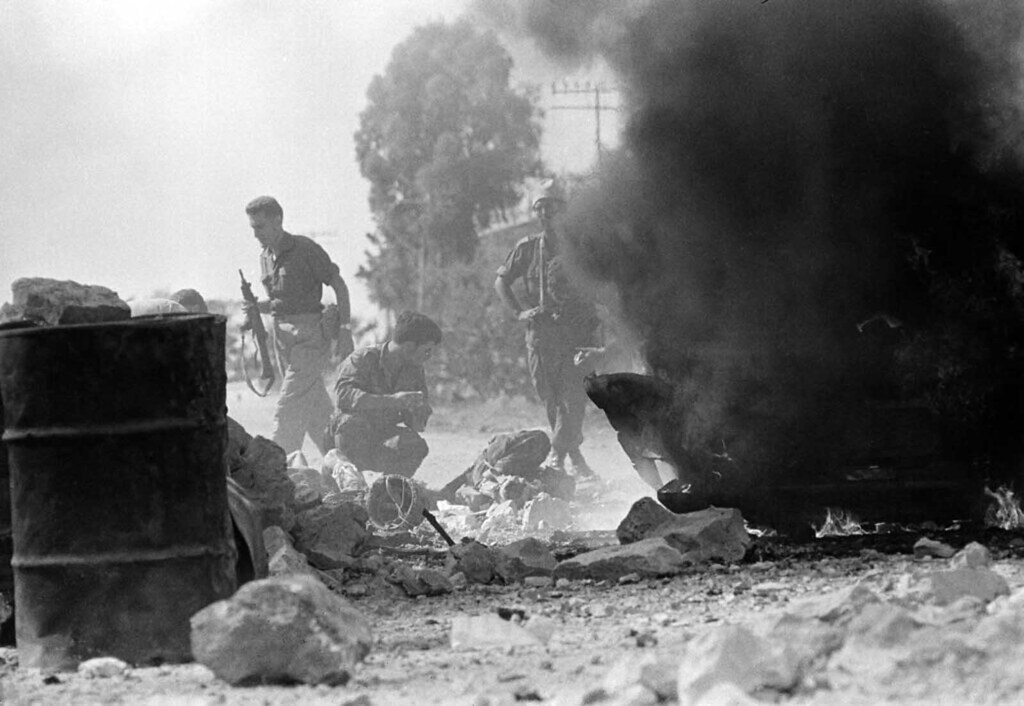
The Rome Statute further identifies the crime against humanity of persecution as "the intentional and severe deprivation of fundamental rights contrary to international law based on the identity of the group or collectivity," including on racial, national, or ethnic grounds. Customary international law defines persecution as involving severe abuses of fundamental rights committed on a widespread or systematic basis, with discriminatory intent.
Few courts have adjudicated cases involving persecution, and none have addressed the crime of apartheid, leading to a dearth of legal precedents on the interpretations of key terms in their definitions. International criminal courts have recently considered group identity based on contextual and locally constructed factors, departing from earlier approaches focused on hereditary physical traits. In international human rights law, race and racial discrimination encompass distinctions based on descent, national or ethnic origin, among other categories, as broadly interpreted in treaties such as the International Convention on the Elimination of All Forms of Racial Discrimination (ICERD).
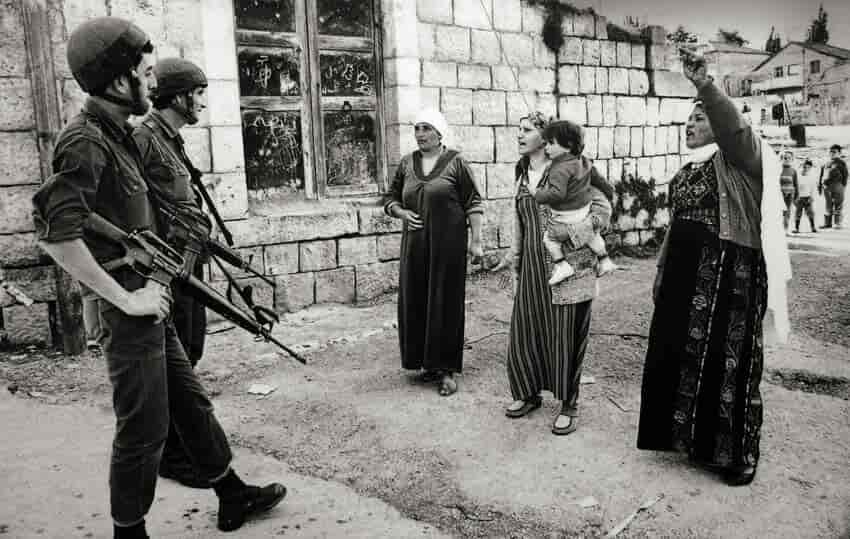
Why is Israel being blamed of Apartheid & Genocide
To achieve its goal of supremacy, the Israeli government employs a systematic framework of discrimination against Palestinians, deeply embedded within its institutional structures. This discriminatory apparatus operates with varying intensities across different domains of Israeli control, reaching its zenith in specific regions within the Occupied Palestinian Territories (OPT).
Within the OPT, encompassing the West Bank and Gaza, Israeli policies delineate starkly disparate treatment for Palestinians in contrast to Jewish Israeli settlers. In the occupied West Bank, Palestinians find themselves ensnared within a web of stringent military regulations and enforced segregation, effectively barring their access to Israeli settlements. Conversely, in the besieged Gaza Strip, Palestinians contend with the suffocating grip of a comprehensive closure, curtailing the flow of both people and goods—an ordeal compounded by the scant intervention from Gaza's neighbouring nation, Egypt. The annexed East Jerusalem, while claimed by Israel as part of its sovereign territory, remains designated as occupied under international law. Here, Palestinians grapple with a labyrinth of residency restrictions, with legal standing contingent upon factors like their connections to the city.
This intricate tapestry of discrimination paints a picture of systemic oppression endured by the Palestinian populace, underscoring the pervasive reach of Israel's dominance agenda.
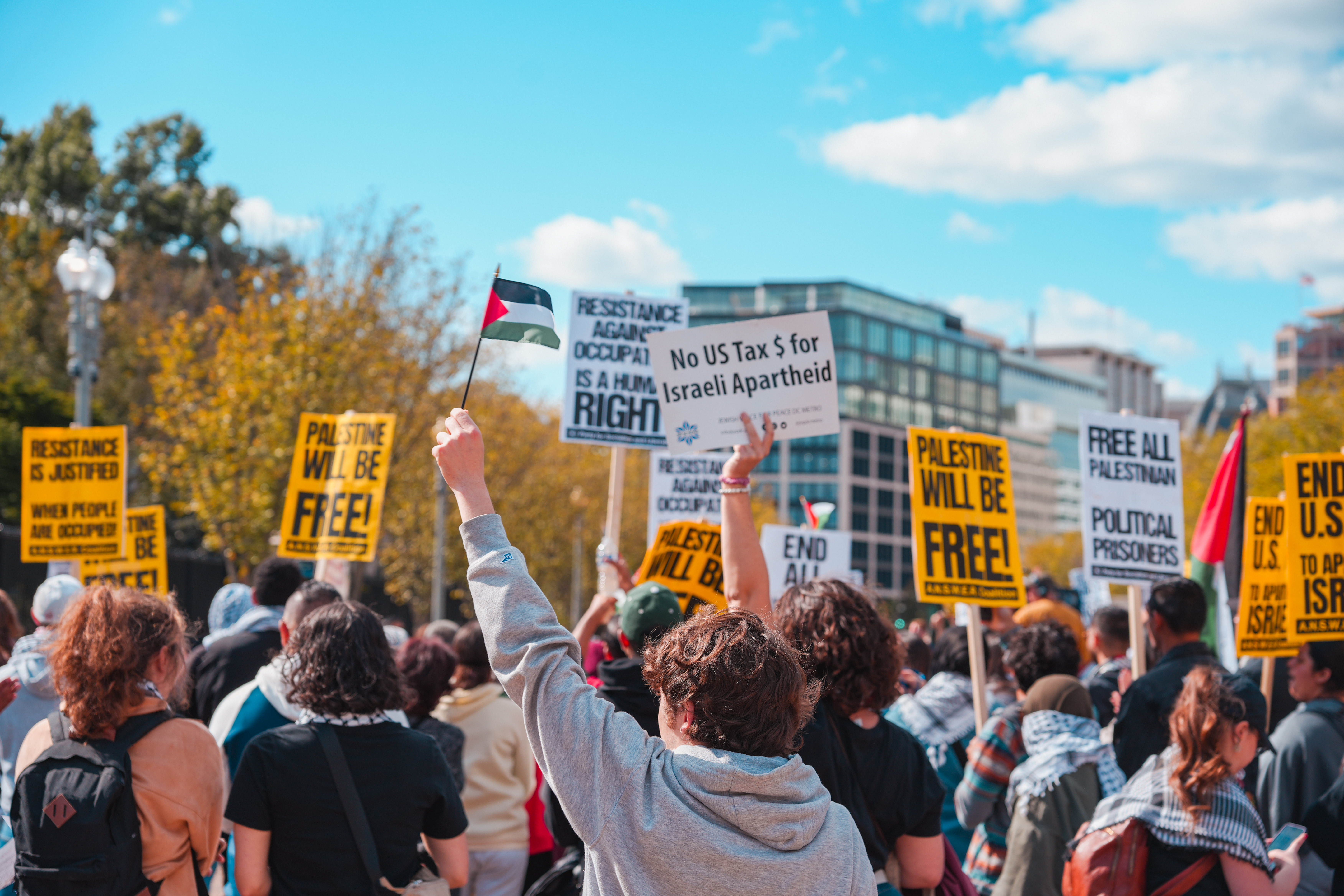
Social & Historic Context
Within the confines of Israel, defined by its pre-1967 borders as recognised by the majority of nations, a two-tiered citizenship framework and the separation of nationality and citizenship perpetuate a system where Palestinian citizens are relegated to an inferior status under the law compared to their Jewish counterparts. While Palestinian citizens in Israel possess the right to participate in Israeli elections, this semblance of democratic participation fails to mitigate the institutional discrimination ingrained within the Israeli government. This discrimination manifests in various forms, including severe restrictions on land access, rampant home demolitions, and stringent barriers to family reunification.
The deliberate fragmentation of the Palestinian populace, facilitated in part by Israeli-imposed constraints on movement and residency, serves to advance the agenda of domination while obfuscating the reality of systemic repression inflicted upon this population by the Israeli government. This repression, tailored to different degrees across various regions, serves the interests of the dominant Jewish Israeli demographic.
In adherence to these policies, Israeli authorities have implemented a series of oppressive measures in the OPT. These include extensive constraints on the movement of 4.7 million Palestinians residing there, the expropriation of a significant portion of their land, and the imposition of harsh conditions. These conditions encompass the systematic denial of building permits across vast swathes of the West Bank, prompting thousands of Palestinians to abandon their homes under circumstances tantamount to forced displacement.
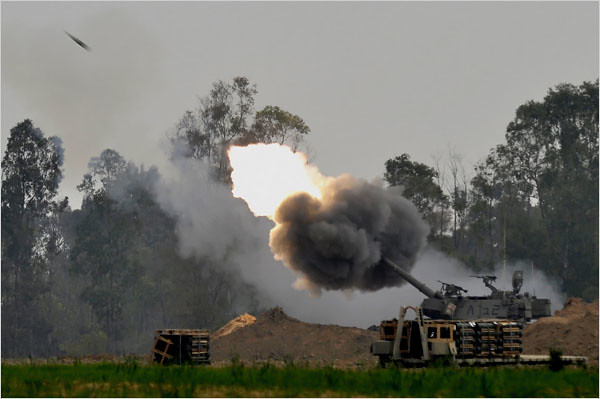
Furthermore, hundreds of thousands of Palestinians and their relatives have been deprived of residency rights, often due to their absence abroad during the onset of the occupation in 1967 or prolonged periods throughout its initial decades. Additionally, the effective freeze on family reunification over the past two decades has further exacerbated this situation. Basic civil liberties, such as freedom of assembly and association, have been suspended, depriving Palestinians of a voice in crucial matters that significantly impact their daily lives and future prospects.
Many of these violations, including the blanket denial of building permits, mass revocations or restrictions on residency, and widespread land confiscations, lack any legitimate security rationale. Others, such as the extent of movement restrictions and curtailments on civil rights, fail to withstand scrutiny when weighed against purported security concerns, underscoring the disproportionate nature of these rights abuses.
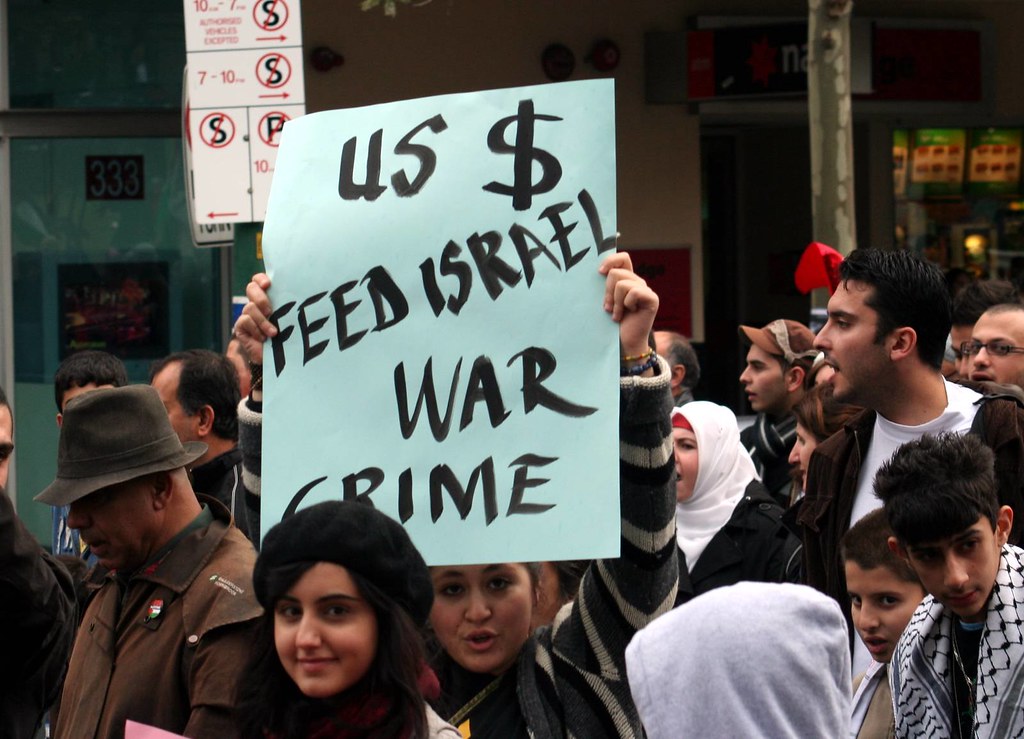
The UN, the West & the World needs to act:
The Israeli government must take urgent action to dismantle all forms of systematic oppression that favour Jewish Israelis and oppress Palestinians. This includes putting an end to the persecution faced by Palestinians. Specific measures should be taken to eliminate discriminatory policies and practices related to citizenship and residency rights, civil liberties, freedom of movement, land and resource allocation, access to essential services like water and electricity, and the granting of building permits.
The findings indicating the commission of crimes against humanity, including apartheid and persecution, do not negate the reality of Israeli occupation nor relieve Israel of its obligations under international law. Therefore, Israeli authorities must cease the construction of settlements and dismantle existing ones. They must also ensure that Palestinians in the West Bank and Gaza are afforded full respect for their human rights, equivalent to those enjoyed by Israeli citizens, in accordance with international humanitarian law.
Additionally, the Palestinian Authority (PA) should cease all forms of security coordination with the Israeli army that contribute to facilitating crimes against humanity, such as apartheid and persecution. The acknowledgment of crimes against humanity should prompt the international community to reassess its approach to the Israel-Palestine conflict. For too long, the United States and other countries have failed to adequately address Israel's systematic repression of Palestinians. Some have even supported or enabled serious abuses, such as the construction of settlements in the occupied West Bank.
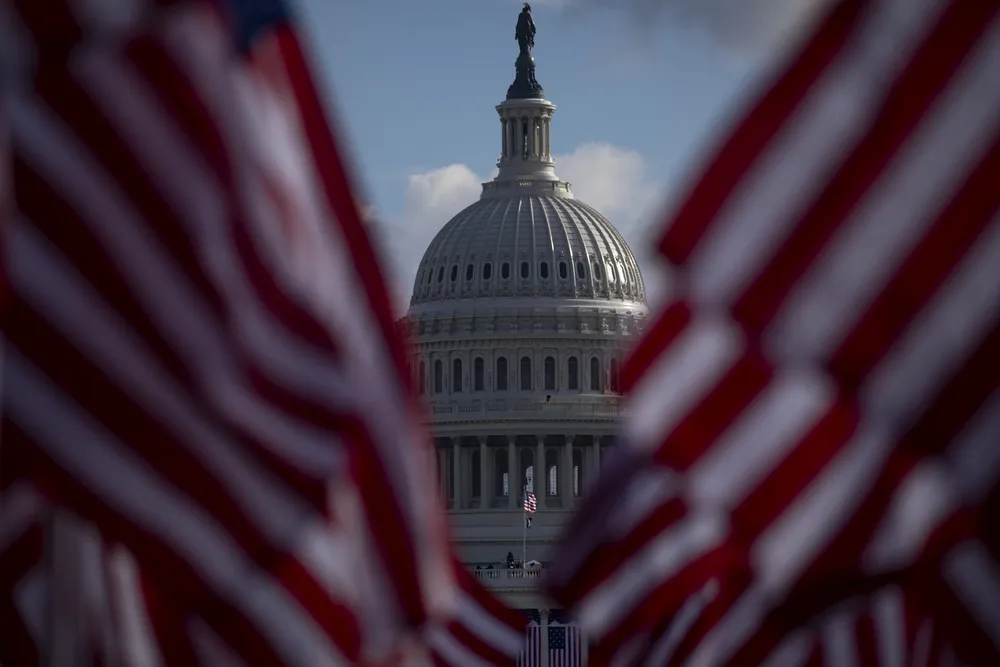
Many countries, including European states, have maintained close ties with Israel while engaging in efforts to promote a peace process and bolster the capacity of the Palestinian Authority. However, this approach overlooks the entrenched nature of Israeli discrimination and repression against Palestinians and minimises serious human rights abuses by treating them as temporary issues related to the occupation. After 54 years of ongoing conflict, it is time for states to shift their focus away from speculative peace processes and instead address the longstanding reality on the ground. This reality shows no signs of improvement, and the international community must hold Israel accountable for its actions and work towards genuine solutions that respect the rights and dignity of all individuals involved.
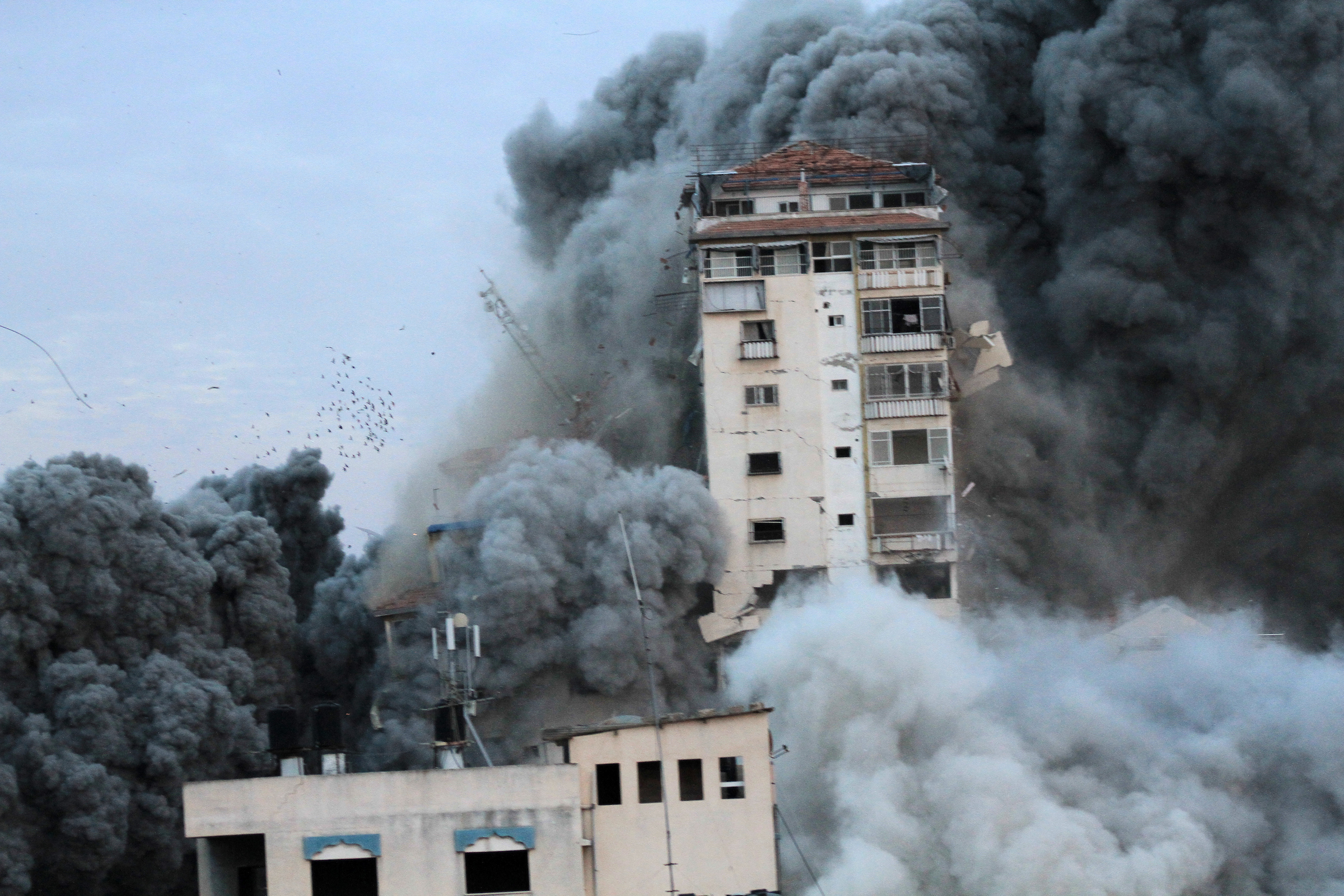
Accusations of War Crimes & Crimes Against Humanity
Strange what a century can do. The ones who were once the victim, are now considered to the same at their torturers. Crimes against humanity can result in individual criminal accountability not only in international forums but also in domestic courts outside of Israel and the Occupied Palestinian Territories (OPT) under the principle of universal jurisdiction. Given the persistent failure of Israeli authorities to address serious abuses, it is imperative for the International Criminal Court's Office of the Prosecutor to initiate investigations and prosecute individuals implicated in crimes against humanity, specifically apartheid or persecution. The ICC holds jurisdiction over and has already commenced investigations into grave crimes committed in the OPT. Furthermore, all governments must undertake investigations and prosecutions of those individuals involved in these crimes, utilising the principle of universal jurisdiction and adhering to national laws.
Beyond addressing criminality, Human Rights Watch urges states to establish, through the United Nations, an international commission of inquiry tasked with investigating systematic discrimination and repression based on group identity in both the OPT and Israel. This inquiry should be empowered to meticulously examine and analyse facts, identify perpetrators responsible for serious crimes, including apartheid and persecution, and ensure that they are held accountable. Additionally, the commission should collect and safeguard evidence of abuses for potential future use by credible judicial institutions.
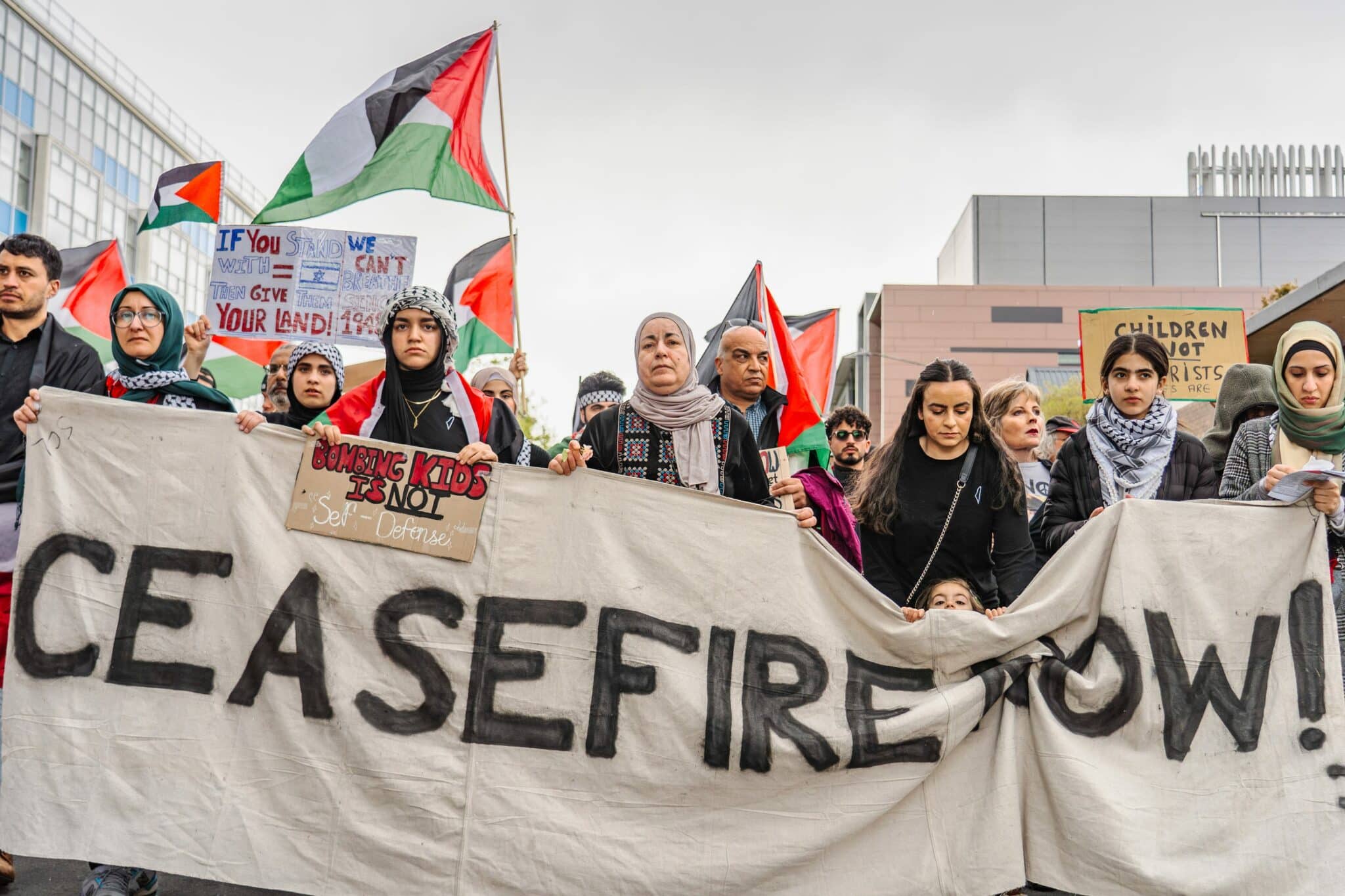
Furthermore, states should advocate for the establishment of a UN global envoy position dedicated to addressing the crimes of persecution and apartheid worldwide. This envoy would be tasked with mobilising international action to bring an end to persecution and apartheid wherever they occur, serving as a critical mechanism for promoting accountability and justice on a global scale.
--
The Amnesty Papers: Will Israel ever face the consequences of it's war crimes & apartheid?
Amidst the escalating conflict in the occupied Gaza Strip, Israeli forces have escalated their assault, resulting in catastrophic consequences. Amnesty International has meticulously documented these actions, uncovering a series of unlawful attacks that must be regarded as potential war crimes. Through interviews with survivors and eyewitnesses, analysis of satellite imagery, and verification of visual evidence, the organisation has shed light on the devastating impact of Israeli air bombardments conducted between 7 and 12 October.
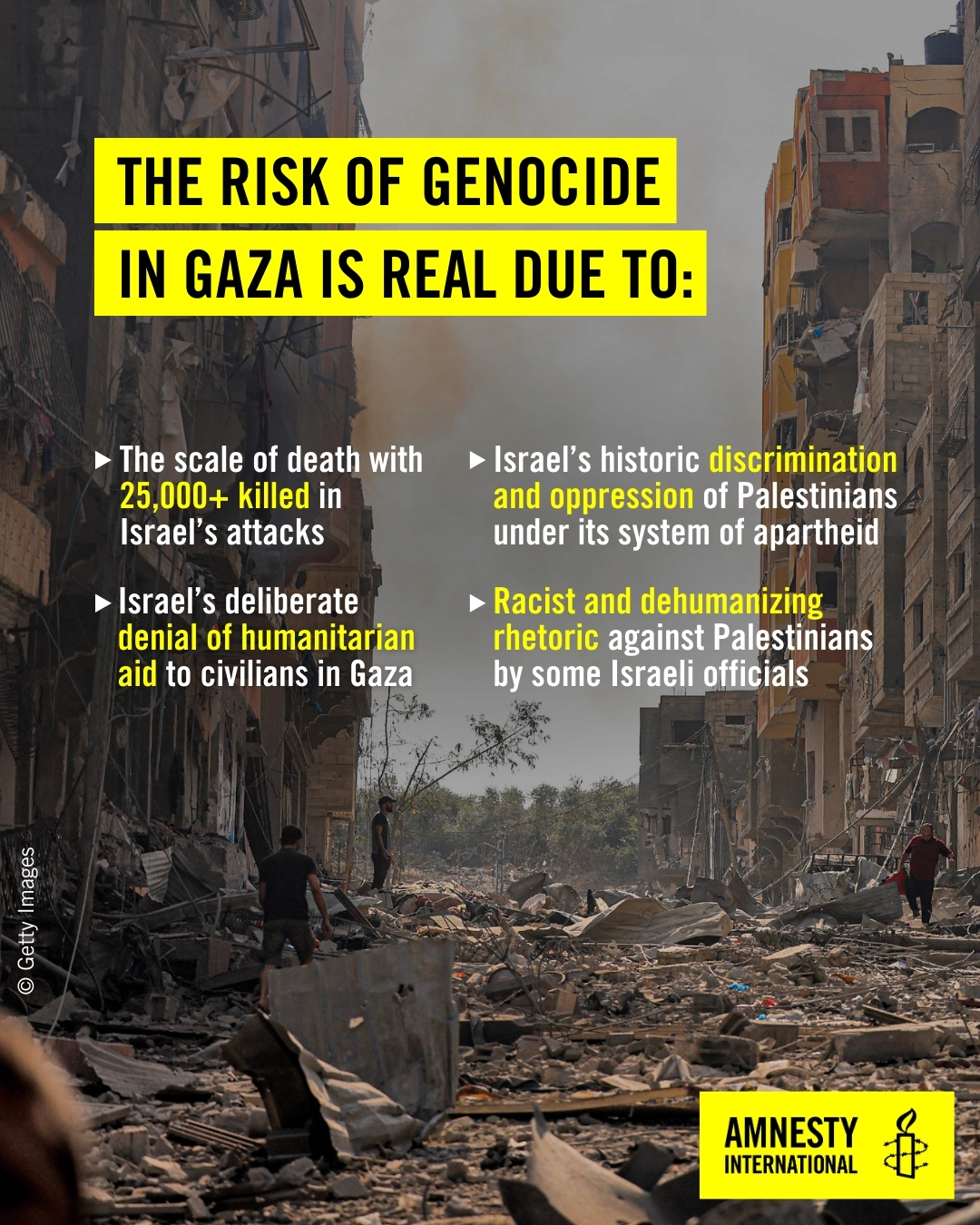
During this period, these attacks inflicted immense destruction, with some instances leading to the obliteration of entire families. Amnesty International has conducted a thorough examination of five of these unlawful attacks, presenting a detailed analysis of its findings. In each case, Israeli forces violated international humanitarian law, demonstrating a disregard for the principles of distinction and proportionality.
Specifically, these attacks contravened humanitarian law by failing to take feasible precautions to spare civilians. Moreover, Israeli forces carried out indiscriminate attacks that failed to distinguish between civilian and military targets, resulting in civilian casualties. Additionally, some attacks targeted civilian objects, further exacerbating the humanitarian crisis.
Amnesty International's investigation underscores the urgent need for accountability and justice in the face of these egregious violations. It is imperative that those responsible for these unlawful actions are held to account, and measures are taken to prevent such atrocities from recurring in the future. The international community must stand in solidarity with the victims of these attacks and demand accountability for those who have suffered as a result of these egregious violations of international law.
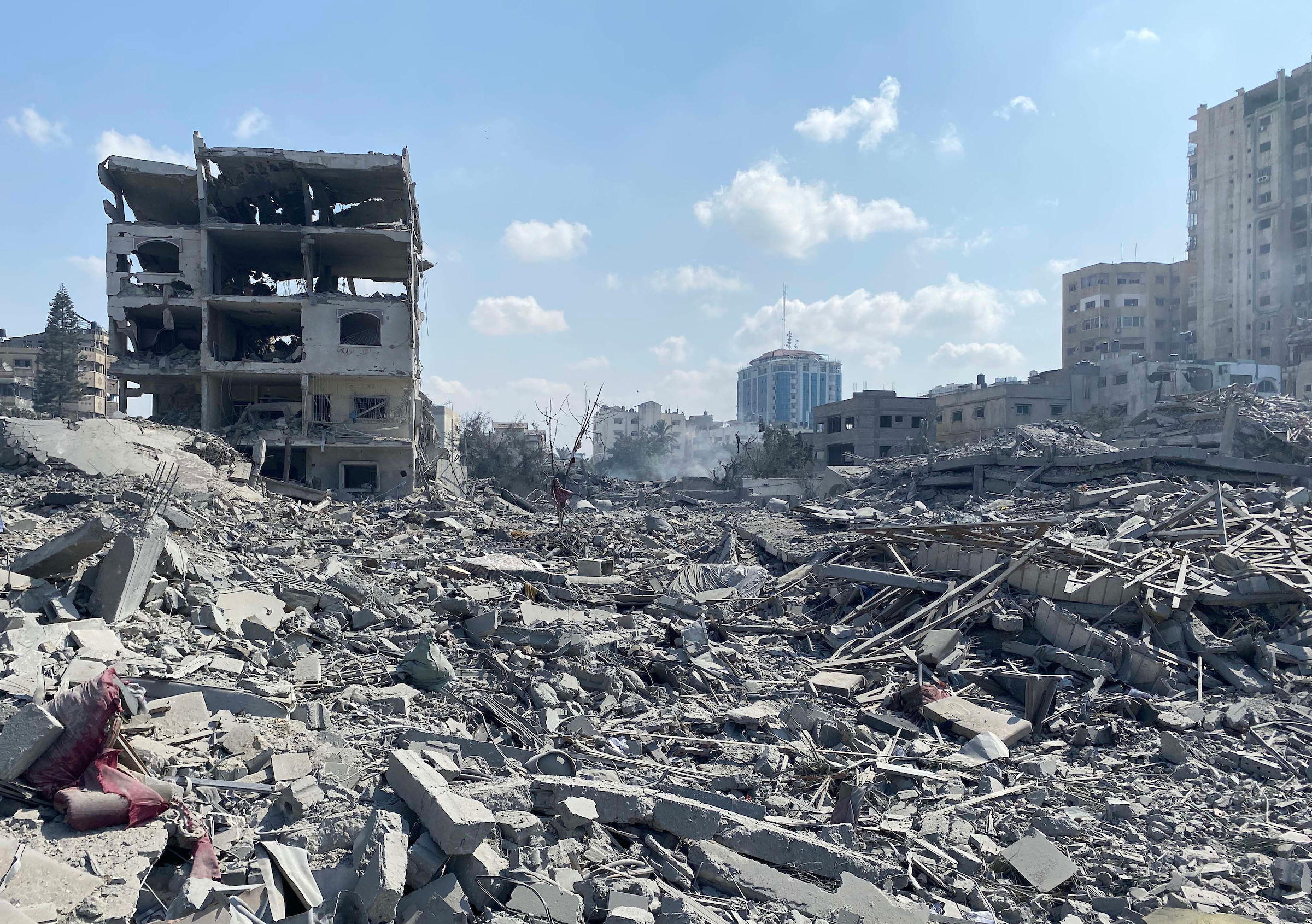
Since October 7th, Israeli forces have conducted numerous air bombardments in the Gaza Strip, resulting in a devastating toll on human lives. According to the Palestinian Ministry of Health in Gaza, at least 3,793 people have been killed, the majority of whom were civilians. Among the casualties, tragically, are over 1,500 children. Additionally, approximately 12,500 individuals have been injured in these attacks, and the remains of more than 1,000 people are still buried beneath the rubble, highlighting the immense scale of destruction and loss experienced in the region.
In Israel, the toll of the conflict has been significant, with over 1,400 individuals losing their lives, the majority of whom were civilians. Additionally, around 3,300 others have been injured, according to reports from the Israeli Ministry of Health. These casualties occurred following an unprecedented attack by armed groups from the Gaza Strip on October 7th. The attack involved the firing of indiscriminate rockets into Israeli territory and the infiltration of fighters into southern Israel. Disturbingly, these actions included war crimes such as the deliberate targeting of civilians and the taking of hostages. The Israeli military has reported that more than 200 civilian hostages and military captives were taken back to the Gaza Strip as a result of these operations.
Following the commencement of attacks, Israeli forces launched a large-scale bombardment of Gaza, resulting in significant destruction. In response, Hamas and other armed groups also continued to launch indiscriminate rockets into civilian areas in Israel, actions that warrant investigation as potential war crimes. Meanwhile, in the occupied West Bank, including East Jerusalem, Israeli forces and settlers have been implicated in the deaths of at least 79 Palestinians, including 20 children. This escalation has been marked by a surge in the use of excessive force by the Israeli army and an increase in state-supported settler violence, which Amnesty International is actively investigating.
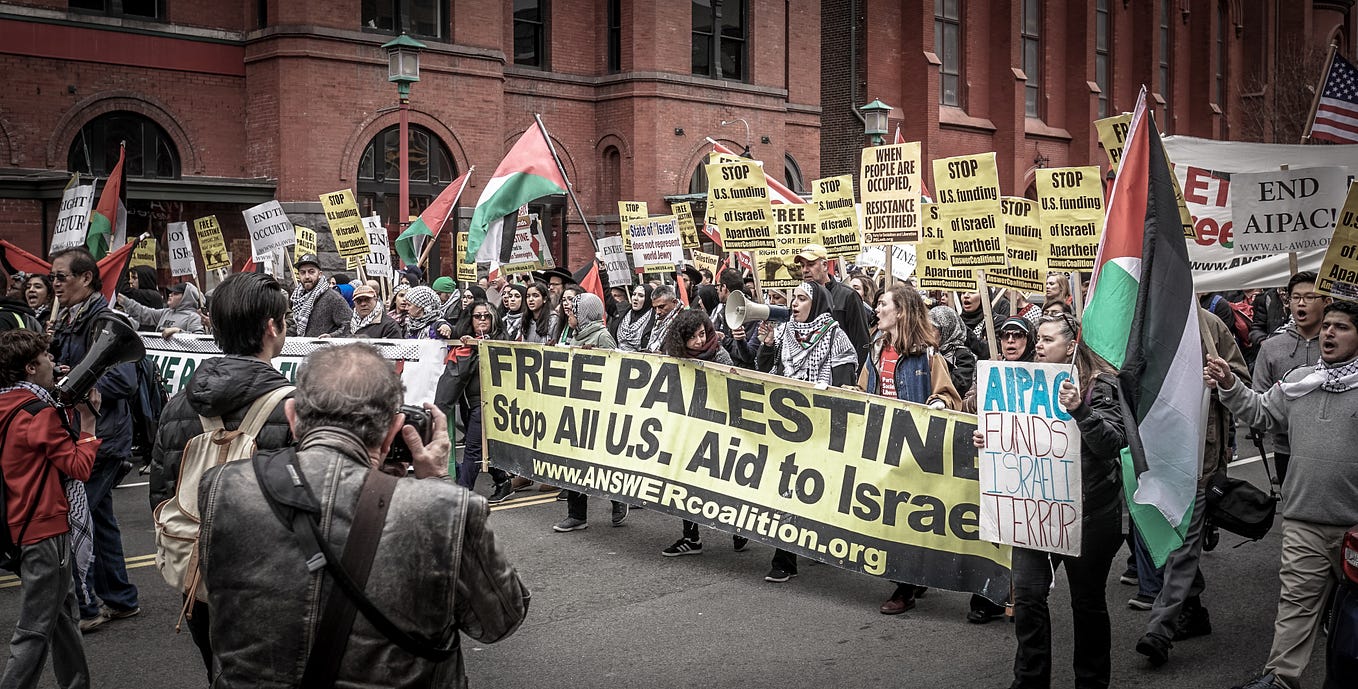
Amnesty International remains actively engaged in investigating numerous attacks in Gaza, with a particular focus on five unlawful incidents that targeted residential buildings, a refugee camp, a family home, and a public market. Despite claims by the Israeli army that it solely targets military objectives, our findings reveal otherwise. In several instances, Amnesty International found no evidence of the presence of fighters or other military targets in the vicinity at the time of the attacks. Furthermore, our investigation uncovered instances where the Israeli military failed to take all necessary precautions prior to launching attacks. This included the absence of effective prior warnings to Palestinian civilians, with some cases lacking any warnings at all, while others received inadequate notifications. Such failures raise serious concerns about compliance with international humanitarian law and the protection of civilian lives.
The unrelenting bombardment of Gaza has inflicted unimaginable suffering on a population already reeling from a dire humanitarian crisis. Under Israel's illegal blockade for over 16 years, Gaza's healthcare system teeters on the brink of collapse, while its economy lies in ruins. Hospitals struggle to cope with the influx of wounded individuals, facing severe shortages of life-saving medication and essential equipment.
Amnesty International is urgently calling on the international community to pressure Israel to end its draconian siege, which has severed Gazans' access to basic necessities such as food, water, electricity, and fuel. Furthermore, there is an urgent need for humanitarian aid to be allowed into Gaza to alleviate the dire conditions faced by its inhabitants. The international community must demand that Israel lift its longstanding blockade on Gaza, which constitutes collective punishment of the civilian population and amounts to a war crime. This blockade is a fundamental aspect of Israel's apartheid system, perpetuating the suffering of Gaza's residents.
Finally, the Israeli authorities must revoke their "evacuation order," which threatens forced displacement of the population. Such actions only exacerbate the humanitarian crisis in Gaza and must be met with swift condemnation and action from the international community.
In the five cases outlined in the report, Amnesty International concluded that Israeli forces conducted attacks that contravened international humanitarian law. These violations included a failure to take reasonable precautions to minimise harm to civilians, engaging in indiscriminate attacks that did not differentiate between civilian and military targets, and potentially targeting civilian objects. Such actions represent serious breaches of international humanitarian law and underscore the urgent need for accountability and justice. It is imperative that those responsible for these violations are held accountable for their actions, and measures are taken to prevent similar violations from occurring in the future.
--
What does the International Humanitarian Law Say about all this?
According to international humanitarian law, all parties involved in a conflict are obligated to consistently differentiate between civilians and civilian objects, as well as combatants and military targets. They must ensure that their attacks are directed solely at combatants and military objectives. Any deliberate attacks on civilians or civilian objects are strictly prohibited and constitute war crimes. Similarly, indiscriminate attacks, which fail to make this crucial distinction as required, are also prohibited. In cases where such indiscriminate attacks result in civilian casualties or injuries, they are considered war crimes.
Disproportionate attacks, where the expected harm to civilians and civilian objects outweighs the anticipated military advantage, are strictly forbidden. Launching such attacks knowingly constitutes a war crime. These principles underscore the importance of upholding the principles of distinction, proportionality, and precaution in warfare, with the aim of minimising harm to civilians and civilian infrastructure during armed conflicts. The presence of civilians in the building at the time of the airstrike aligns with the accounts of survivors who reported receiving no warnings from Israeli forces. It took over six hours for relatives, neighbours, and rescue teams to retrieve the bodies from the rubble, underscoring the magnitude of the devastation.

Amnesty International's investigation found no evidence of military targets in the vicinity during the attack. If Israeli forces knowingly targeted a residential building where only civilians were present, it constitutes a direct attack on civilians or a civilian object, both of which are prohibited under international law and amount to war crimes. Israel has not provided any explanation for the incident, and the burden falls on the attacker to justify the legitimacy of their military actions.
Even if Israeli forces intended to target a military objective, the attack on a residential building, packed with civilians, in the heart of a densely populated civilian area, resulting in such significant civilian casualties and destruction, would be considered indiscriminate. Indiscriminate attacks that result in civilian deaths and injuries are unequivocally condemned as war crimes.
Amnesty International's documentation of cases consistently reveals instances where the Israeli military either failed to provide any warnings to civilians or issued inadequate and unclear warnings. In some scenarios, warnings were directed at only a single individual despite the impact affecting entire buildings or streets densely populated with people. Moreover, the "evacuation" orders issued were often ambiguous, leaving residents uncertain about the timeframe and lacking a clear understanding of where to seek safety.
Alarmingly, Israeli forces did not ensure that civilians had access to a safe place to evacuate to, exacerbating the risk to civilian lives. In one tragic incident at Jabalia market, individuals responded to the "evacuation" order by leaving their homes, only to face death at the location they had sought refuge in. These failures to adequately warn and protect civilians highlight the grave consequences of indiscriminate attacks and the urgent need for accountability and measures to prevent further loss of innocent lives. Issuing a warning does not absolve armed forces of their broader obligations under international humanitarian law. In this case, considering the elapsed time since the warning was issued, those conducting the attack should have taken additional steps to verify the presence of civilians before proceeding. Moreover, if it is confirmed that the attack was directly targeting a civilian object, it would constitute a clear violation of international law and amount to a war crime.
![]()
The attack, characterised by witness testimonies, satellite imagery, and verified videos, resulted in significant civilian casualties and was conducted in an indiscriminate manner. As such, it demands thorough investigation as a potential war crime, with those responsible held accountable for their actions. Such incidents underscore the critical importance of upholding international humanitarian law to protect civilian lives during times of conflict. Amnesty International's investigation revealed that while a Hamas member had been residing on one of the floors of the building, he was not present during the air strike. It's important to note that mere membership in a political group does not automatically classify an individual as a military target.
Even if the individual in question was a fighter, their presence in a civilian building does not render the building or its occupants legitimate military targets. Under international humanitarian law, Israeli forces are required to take all feasible precautions to minimise harm to civilians and civilian property. This includes canceling or postponing attacks if they would result in indiscriminate or otherwise unlawful harm. Regrettably, such precautions were not observed prior to the air strike in Sheikh Radwan. The building was known to be occupied by civilian residents, including numerous children, and the foreseeable danger to their lives should have been anticipated. This constitutes an indiscriminate attack resulting in civilian casualties and injuries, and it warrants investigation as a potential war crime.
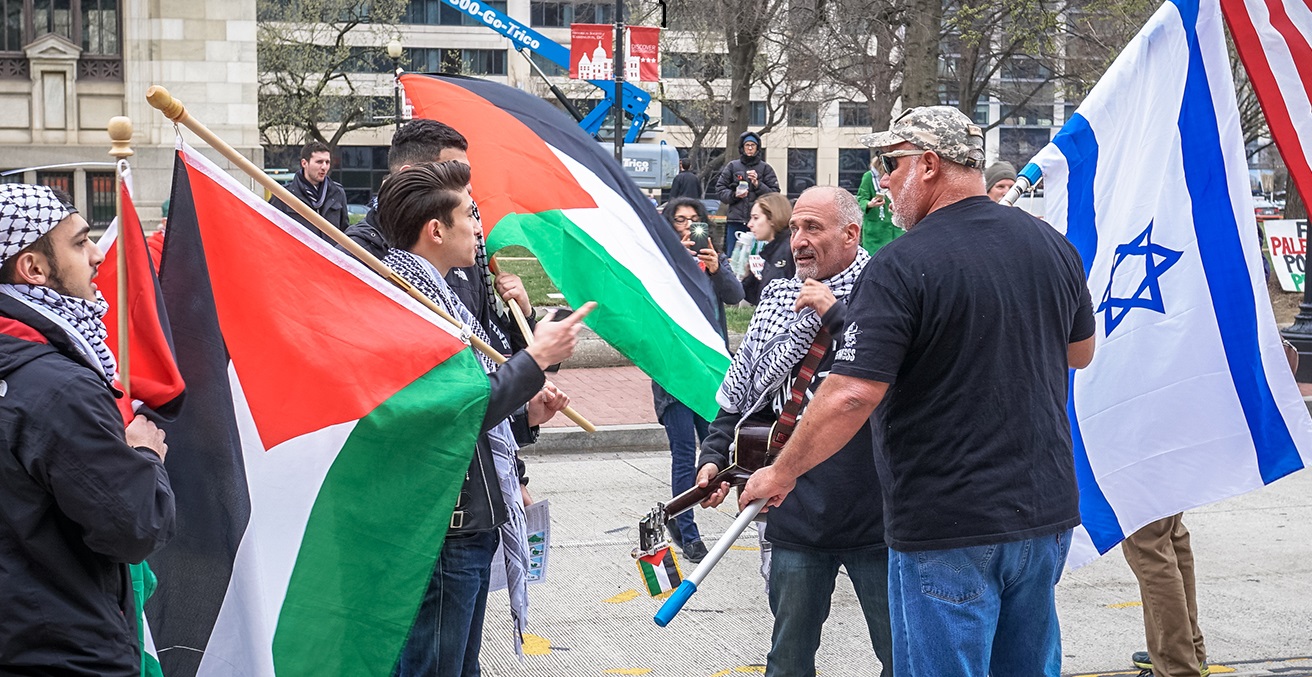
Amnesty International urges immediate action from all parties involved in the conflict to adhere to international humanitarian law. This includes taking all necessary precautions to minimise harm to civilians and civilian infrastructure and refraining from direct attacks on civilians, indiscriminate attacks, and disproportionate use of force.
Specifically, Amnesty International calls for:
- Immediate cessation of unlawful attacks and strict adherence to international humanitarian law, including measures to protect civilians and civilian objects.
- Unimpeded delivery of humanitarian aid to civilians in Gaza to address urgent humanitarian needs.
- Urgent lifting of the illegal blockade on Gaza, which constitutes collective punishment and is a violation of international law.
- Withdrawal of the "evacuation" order, which has resulted in the displacement of over one million people.
- Granting immediate access to the Independent Commission of Inquiry on the Occupied Palestinian Territory to conduct thorough investigations, including gathering time-sensitive evidence and testimonies.
- These measures are essential to mitigate the ongoing devastation and uphold the rights and dignity of civilians affected by the conflict.
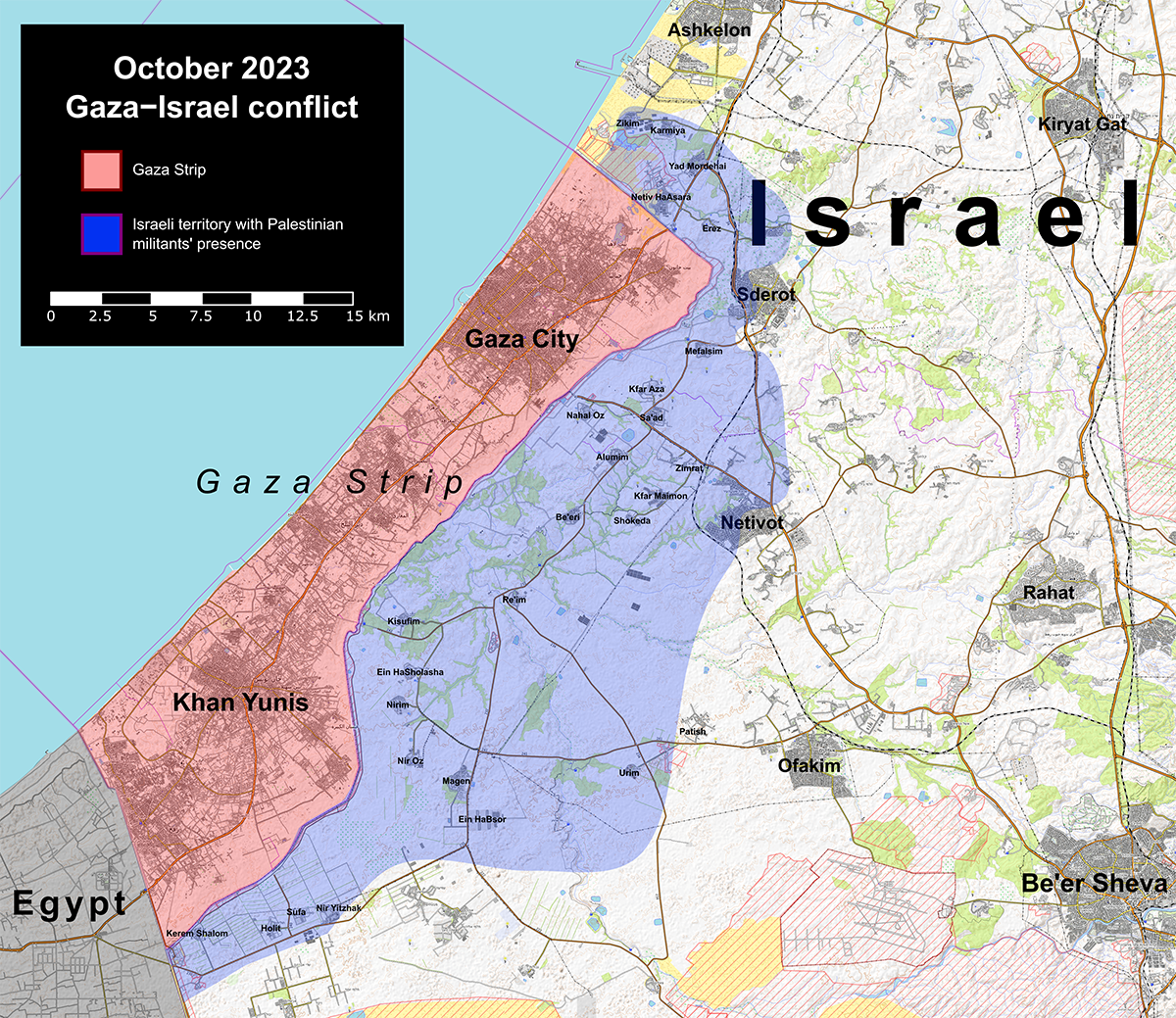
Amnesty International calls upon the international community, with a particular focus on Israel's allies such as EU member states, the US, and the UK, to take decisive actions:
- Implement concrete measures to safeguard the civilian population of Gaza from unlawful attacks, ensuring their protection in accordance with international humanitarian law.
- Enforce a comprehensive arms embargo on all parties involved in the conflict, recognising that grave violations constituting crimes under international law are occurring.
- Refrain from supplying Israel with arms, military equipment, and related technologies, as well as any form of assistance, including training or financial aid.
- Advocate for states providing arms to Palestinian armed groups to cease such activities.
- Avoid making any statements or engaging in actions that could indirectly legitimise Israel's actions and violations in Gaza.
- Exert pressure on Israel to terminate its illegal 16-year blockade of the Gaza Strip, which amounts to collective punishment and constitutes a war crime under international law, as well as a key component of Israel's apartheid system.
- Ensure full support and allocation of necessary resources for the ongoing investigation by the International Criminal Court into the situation in Palestine.
- These actions are imperative to uphold international law, protect civilians, and bring accountability for violations committed during the conflict in Gaza.
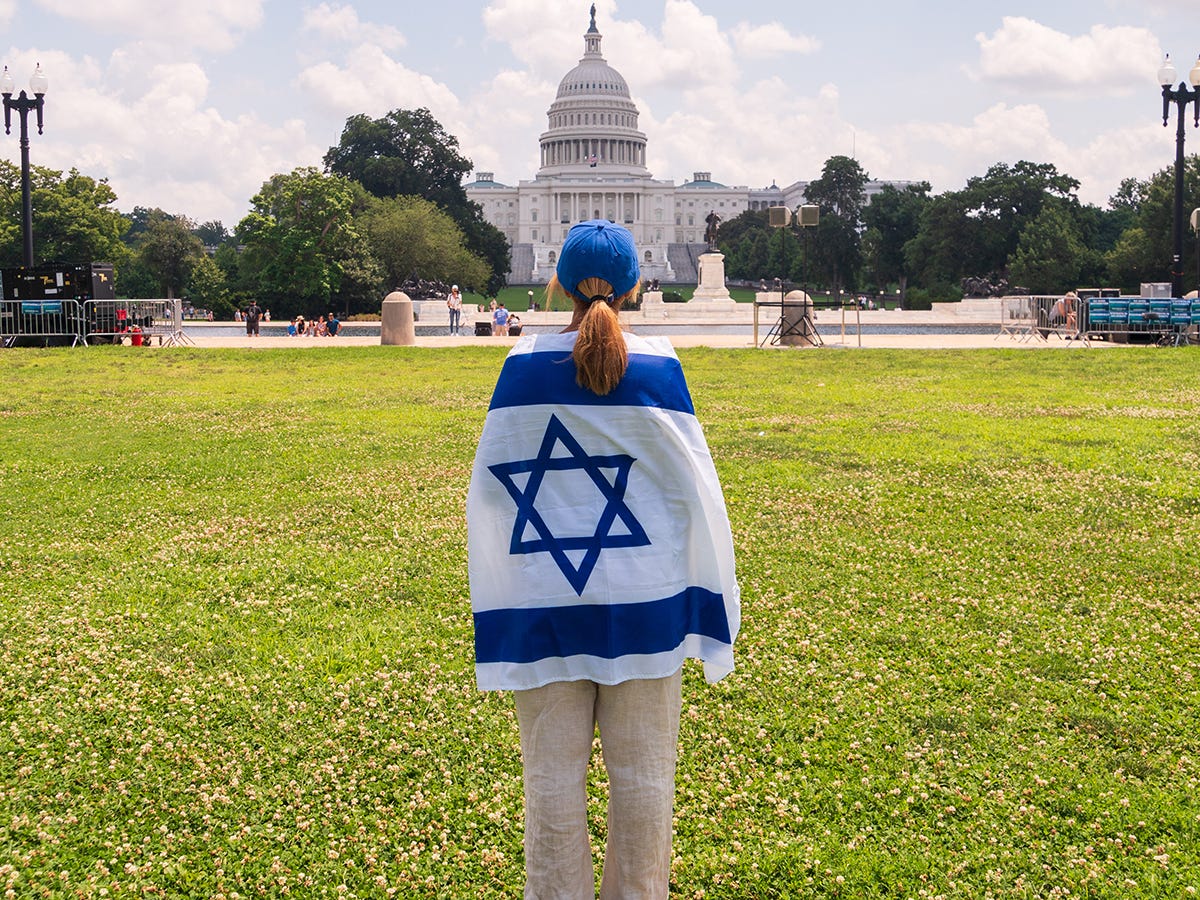
--
How Long will America let Israel play the Victim-Card?
The west, especially America has always been smitten by the concept of Israel. Whether as a strategic military outpost, or as an enabler of genocide - Americans, and their political class is directly responsible for everything that is happening to Gazans & the middle-east.
The States however, must echo a chorus of concern regarding Israel's practice of apartheid and persecution against Palestinians, harmonising their voices to create a powerful symphony of condemnation. They should embark on a journey of introspection, scrutinising agreements, cooperation schemes, and trade relations with Israel through a kaleidoscope of human rights lenses. In this intricate mosaic, they must sift through each element to identify those that contribute directly to the orchestration of crimes against humanity.
As they navigate this labyrinth of ethical considerations, the western alliance states must endeavour to soften the harsh edges of human rights abuses, employing a palette of diplomatic finesse and strategic manoeuvring. Where possible, they should engage in a delicate dance of negotiation to mitigate the impact of these activities on vulnerable populations. However, should the melody of injustice persist, they must bravely orchestrate the finale, bringing an end to activities and funding that fuel these grave violations.
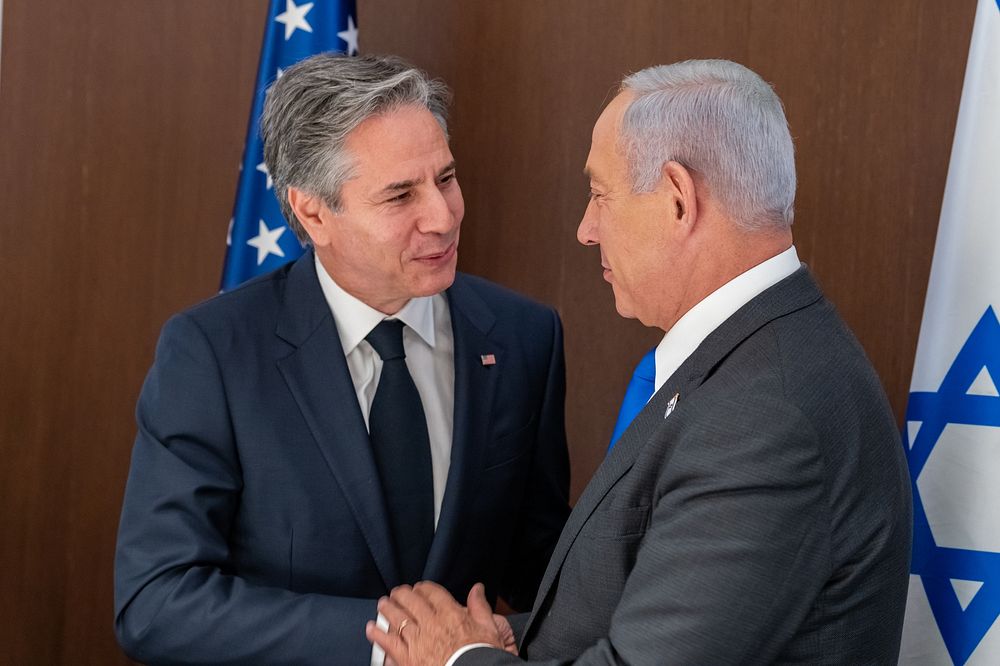
For businesses, the implications of this report create a canvas of complexity, inviting them to explore the intricate interplay between profit and principle. Rather than marching in a linear procession, they must embark on a journey of ethical exploration, navigating a winding path of moral ambiguity. As they contemplate their role in this unfolding drama, businesses must embrace the challenge of redefining their contribution to the greater symphony of human rights. They must embark on a voyage of introspection, questioning the composition of their goods and services and their resonance within the context of apartheid and persecution. Only by embracing this artistic interpretation of ethical responsibility can businesses harmonise with the universal melody of human rights.
In response to the continued perpetration of serious crimes, UN members must enact targeted sanctions, such as travel bans and asset freezes, against officials and individuals directly responsible. Moreover, they should tie arms sales and military and security assistance to Israel to tangible and verifiable steps towards ending the commission of apartheid and persecution. The international community has long grappled with the stark reality unfolding on the ground, yet all too often, these atrocities are brushed aside or overlooked entirely. Each passing day sees the birth of individuals in Gaza, confined within the confines of an open-air prison, while those in the West Bank are deprived of basic civil rights. Meanwhile, in Israel, individuals face a legal system that systematically marginalises them based on their ethnicity. Across neighbouring countries, generations of Palestinians are consigned to perpetual refugee status, denied the opportunity to forge their own destinies solely because of their Palestinian identity.
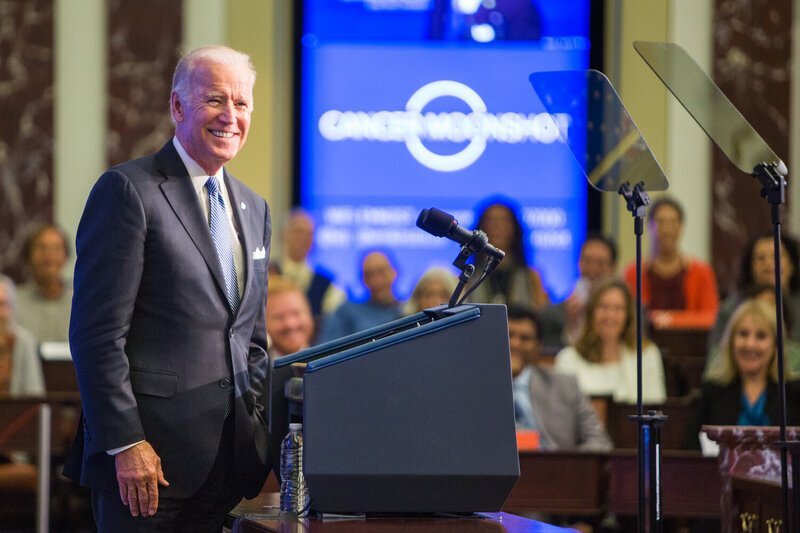
The promise of a future built on freedom, equality, and dignity for all inhabitants of Israel and the Occupied Palestinian Territories remains elusive as long as Israel's oppressive policies against Palestinians persist. It is imperative for the international community to take decisive action to address these injustices and work towards a future where every individual, regardless of their background, can live with dignity and rights fully respected.
--

